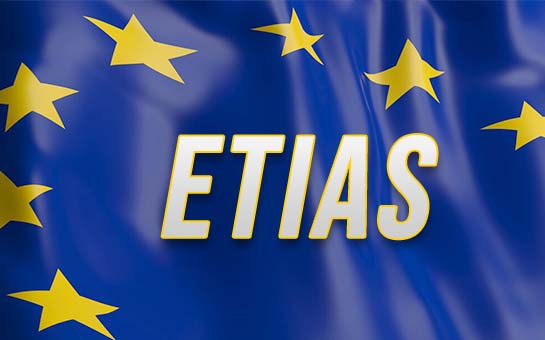Starting in 2024, citizens and nationals of countries who have enjoyed visa-free access to Europe will need to take an extra step prior to traveling to much of the continent. The European Travel Information and Authorisation System (ETIAS) is set to go into effect next year, and it could affect you.
What is ETIAS?
ETIAS is a travel authorization system that’s linked to your passport. Much like the American ESTA system and upcoming British ETA system, ETIAS helps verify a traveler’s identity and bolsters national security for participating countries.
Once you have received valid ETIAS authorization, you can enter any ETIAS participating country as many times as you want for up to 90 days within a 180-day period for up to three years, or until your passport expires. Upon ETIAS or passport expiration, you’ll be required to get a new ETIAS authorization before you can enter participating European countries again.
What Countries in Europe Participate in ETIAS?
There are 30 European countries that will require ETIAS authorization for any visa-exempt traveler.
| | | | | |
| | | | | |
| | | | | |
| | | | | |
| | | | | |
| | | | | |
Who Needs ETIAS Travel Authorization?
If you are a citizen or national of any of these countries, you will be required to have ETIAS authorization in order to travel to any ETIAS country:
| | | | | |
| | | | | |
| | | | | |
| | | | | |
| | | | | |
| | | | | |
| | | | | |
| | | | | |
| | | | | |
| | | | | |
| | | | |
How Do You Apply for ETIAS?
To apply for ETIAS, visit the ETIAS website or use the mobile app. ETIAS application is expected to cost around €7, and authorization can be provided in as little as a few minutes.
When Will ETIAS Go Into Effect?
It is expected that ETIAS will go into effect in 2024. Until then you can continue using the current process to travel to these countries, which varies depending on your nationality and the details of your visit.
What If I Need a Visa to Travel to Europe?
If you are not a national of one of the countries listed above, then you likely already need a visa to travel to countries in Europe, and you will continue requiring a visa after ETIAS goes into effect. ETIAS will have no bearing on you, as you will still need to apply for a visa for the country or area you are visiting. The same goes for visitors to Europe from any country who intend to stay for longer than 90 days. Just as before, you will need the correct visa in order to apply for entry.
Does ETIAS Authorization Require Travel Insurance?
Travel insurance is not expected to be a requirement for visitors to Europe using ETIAS. However, it is strongly recommended.
Visitors going to Europe using ETIAS should always make sure they are protected by travel medical insurance so they are shielded from the high cost of unexpected travel mishaps.
And just has been the case for many years, all visitors entering Schengen countries in Europe using a Schengen visa will still be required to show proof of compliant Schengen visa insurance as part of their Schengen visa application process.
